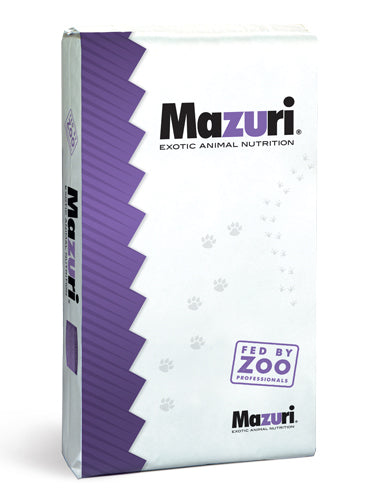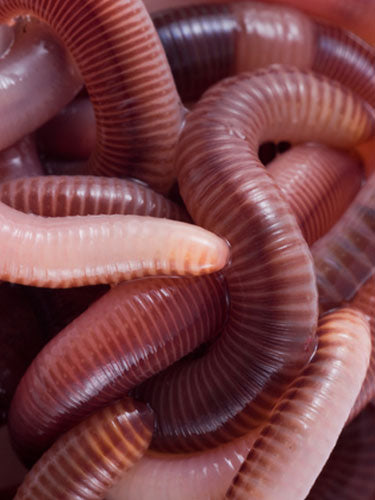Every exotic animal deserves the right nutrition
| Crude protein not less than Crude fat not less than Crude fiber not more than Moisture not more than Ash not more than |
12.0% 2.5% 14.5% 15.0% 8.0% |
Ground Corn, Wheat Middlings, Ground Soybean Hulls, Dehydrated Alfalfa Meal, Cane Molasses, Dehulled Soybean Meal, Ground Wheat, Calcium Carbonate, Porcine Meat and Bone Meal, Fish Meal, Ground Oats, Wheat Germ, Brewers Dried Yeast, Dried Beet Pulp, Corn Gluten Meal, Porcine Animal Fat Preserved with BHA and Citric Acid, Soybean Oil, Dicalcium Phosphate, Dried Whey, Salt, Sucrose, Choline Chloride, Folic Acid, Vitamin A Acetate, DL-Alpha Tocopheryl Acetate (Form of Vitamin E), Vitamin B-12 Supplement, Calcium Pantothenate, Menadione Sodium Bisulfite Complex (source of Vitamin K), Nicotinic Acid, Pyridoxine Hydrochloride, Riboflavin Supplement, Manganous Oxide, Zinc Oxide, Ferrous Carbonate, Copper Sulfate, Zinc Sulfate, Calcium Iodate, Cobalt Carbonate.
- Feed earthworms daily or adjust to management program.
- Sprinkle feed and water lightly over earthworm bed and adjust the amount of feed to what the worms will consume daily, which will depend on the number of worms present.
- Ensure to add new feed when approximately 80% is consumed.
- If composted organics are used for bedding, decrease the feeding rate.
- Do not overfeed, which may lead to sour, moldy bedding.
- For best results, maintain worms beds in a dark location.
Storage Conditions
For best results, store contents of open paper sack in container with sealing lid. Store in a cool (75°F or colder), dry (approximately 50% RH) location. Freezing will not harm the diet and may extend freshness. Adhere to the “Best if used by” date or use within 1 year of bag manufacturing. DO NOT use moldy or insect-infested feed.
Ask Our Experts
Get nutrition advice you can trust from experts who understand the unique nutritional needs and behaviors of your exotic animals.
Get Advice
